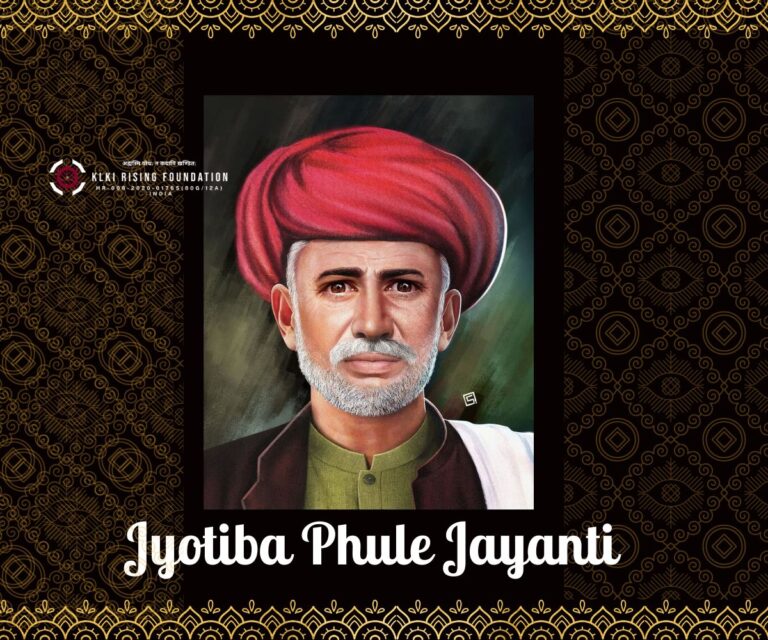The Visionary Reformer Who Ignited a Spiritual Revolution
Dayanand Saraswati, born Mool Shankar Tiwari on 12 February 1824, was a profound philosopher, social reformer, and the founder of the Arya Samaj. His life and teachings have left an indelible mark on Indian society, inspiring millions to embrace Vedic principles and reject social evils. This blog delves into the life, contributions, and legacy of Dayanand Saraswati, a man who dedicated his life to truth, justice, and the revival of ancient Indian wisdom.
Early Life and Spiritual Awakening
Dayanand Saraswati was born in Tankara, Gujarat, into a devout Brahmin family. As a child, he was deeply influenced by the teachings of the Vedas and displayed an inquisitive mind. However, a pivotal moment in his life came during the night of Shivratri when he witnessed a mouse eating offerings meant for Lord Shiva. This incident shattered his blind faith in idol worship and set him on a quest for truth.
At the age of 21, he left his home and family to seek spiritual knowledge. For over 15 years, he traveled across India, studying under various gurus and mastering the Vedas, Sanskrit, and philosophy. His relentless pursuit of truth eventually led him to Swami Virajananda, who became his mentor and guided him to embrace the mission of reviving Vedic teachings.
Founding the Arya Samaj
In 1875, Dayanand Saraswati founded the Arya Samaj, a socio-cultural organization aimed at promoting Vedic values and eradicating social evils. The Arya Samaj emphasized the importance of truth, morality, and the rejection of superstitions, idol worship, and caste discrimination. Dayanand Saraswati’s teachings were rooted in the belief that the Vedas are the ultimate source of knowledge and that every individual has the right to access and interpret them.
The Arya Samaj played a crucial role in empowering women, promoting education, and advocating for social reforms. Dayanand Saraswati’s efforts to abolish child marriage, encourage widow remarriage, and uplift the marginalized sections of society were revolutionary for his time.
Key Teachings and Contributions
- Back to the Vedas: Dayanand Saraswati’s most significant contribution was his call to return to the Vedas. He believed that the Vedas contained eternal truths and that their teachings could guide humanity toward a just and harmonious society.
- Social Reforms: He vehemently opposed caste-based discrimination, untouchability, and other regressive practices. His advocacy for equality and justice resonated with people across the country.
- Education for All: Dayanand Saraswati emphasized the importance of education for both men and women. He established schools and colleges to promote Vedic learning and modern education.
- Religious Unity: He sought to unite people under the common umbrella of Vedic principles, transcending religious and sectarian divides.
- Literary Works: His magnum opus, Satyarth Prakash (The Light of Truth), remains a cornerstone of his philosophy. It addresses various aspects of life, spirituality, and society, offering practical solutions to contemporary issues.
Important Works of Dayanand Saraswati
Dayanand Saraswati’s contributions were not limited to his teachings and social reforms. He authored several influential works that continue to inspire and guide people. Some of his most important works include:
- Satyarth Prakash (The Light of Truth): This seminal work is a comprehensive guide to his philosophy. It critiques prevailing religious practices, advocates for Vedic principles, and provides a roadmap for a just and moral society.
- Rigvedadi Bhashya Bhumika: This work is an introduction to his commentary on the Vedas. It highlights the importance of the Vedas as the ultimate source of knowledge and truth.
- Sanskara Vidhi: A detailed guide on Vedic rituals and ceremonies, this work emphasizes the significance of performing rituals with understanding and devotion rather than blind adherence.
- Vedabhashya: Dayanand Saraswati’s commentary on the Vedas is a monumental work that seeks to make the ancient texts accessible to the common people.
- Gokarunanidhi: This work focuses on the importance of cow protection and its significance in Vedic culture.
Legacy and Impact
Dayanand Saraswati’s legacy continues to inspire generations. His teachings laid the foundation for a more inclusive and progressive society. The Arya Samaj, with its emphasis on education and social reform, has played a pivotal role in shaping modern India. Institutions like the Dayanand Anglo-Vedic (DAV) schools and colleges stand as a testament to his vision of blending traditional wisdom with modern knowledge.
His fearless critique of orthodoxy and his unwavering commitment to truth earned him both admiration and opposition. Despite facing numerous challenges, including assassination attempts, he remained steadfast in his mission until his death on 30 October 1883.
FAQs About Dayanand Saraswati
1. Who was Dayanand Saraswati?
Dayanand Saraswati was a 19th-century philosopher, social reformer, and the founder of the Arya Samaj. He advocated for Vedic principles, social equality, and education for all.
2. What is the Arya Samaj?
The Arya Samaj is a socio-cultural organization founded by Dayanand Saraswati in 1875. It promotes Vedic values, social reforms, and the rejection of superstitions and caste discrimination.
3. What were Dayanand Saraswati’s key teachings?
His key teachings include the importance of the Vedas, social equality, education for all, and the rejection of idol worship and superstitions.
4. How did Dayanand Saraswati contribute to education?
He established schools and colleges to promote Vedic and modern education, emphasizing the importance of education for both men and women.
5. What is Satyarth Prakash?
Satyarth Prakash (The Light of Truth) is Dayanand Saraswati’s seminal work, which outlines his philosophy and addresses various aspects of life, spirituality, and society.
6. What is Dayanand Saraswati’s legacy?
His legacy includes the Arya Samaj, numerous educational institutions, and a lasting impact on social reforms and Vedic revivalism in India.
7. Why is Dayanand Saraswati considered a revolutionary figure?
He challenged orthodoxy, advocated for social equality, and promoted education and Vedic principles, making him a revolutionary figure in 19th-century India.
Conclusion
Dayanand Saraswati was not just a reformer but a visionary who sought to transform society through the power of truth and knowledge. His life and teachings continue to inspire millions, reminding us of the importance of questioning, learning, and striving for a better world. As we reflect on his contributions, let us carry forward his legacy by embracing the values of equality, education, and spiritual growth.
For more inspiring stories and initiatives, visit the KLKI Rising Foundation page and join us in our mission to create a brighter future for all.



